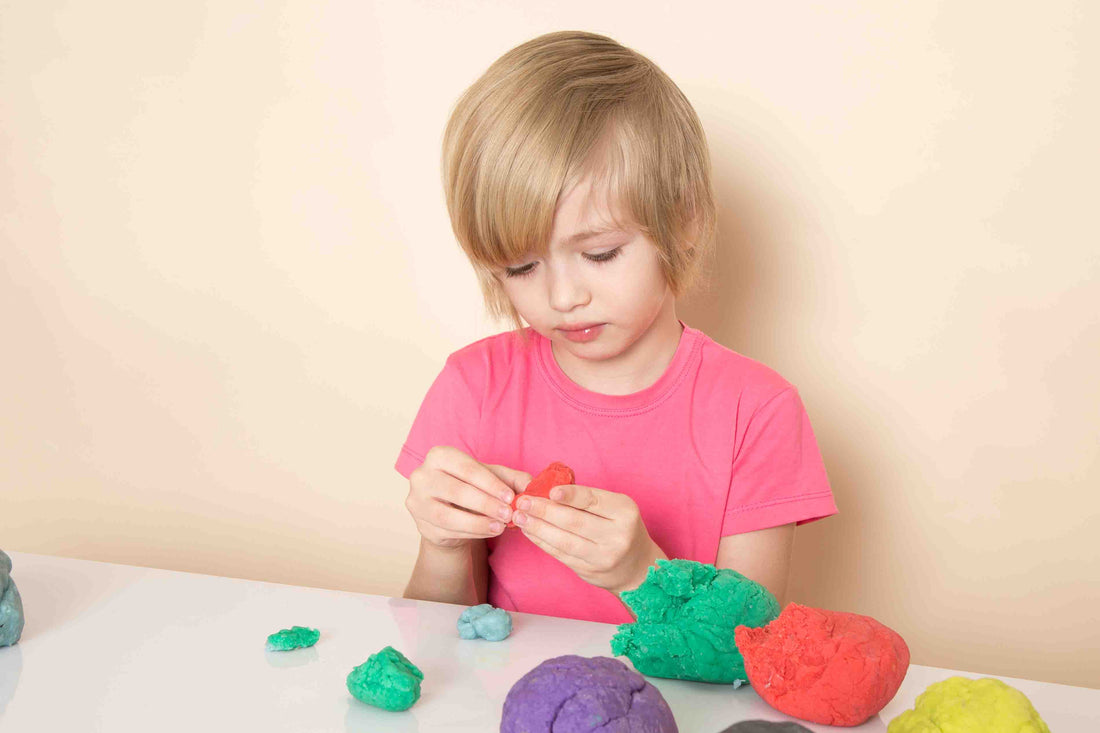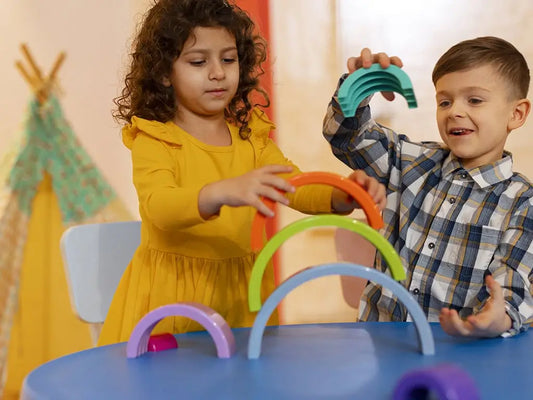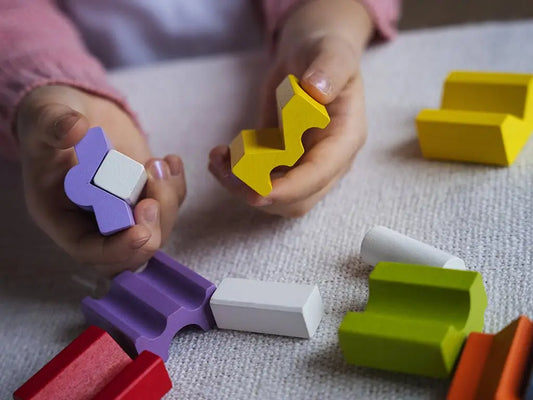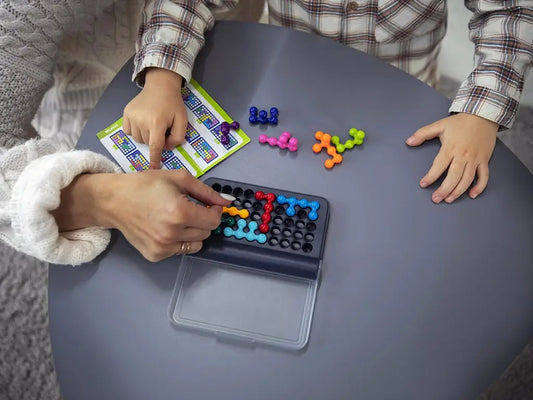Fun Fine Motor Skills Activities to Boost Your Child’s Early Development Journey

Fine motor skills are the small muscle movements that help children perform everyday tasks, such as writing, tying their shoes, and using utensils. Developing fine motor skills is essential because these abilities lay the foundation for academic success, independence, and self-confidence.
By doing fine motor skills activities, children can improve hand-eye coordination, muscle control, and fine motor strength. This blog shares great fine motor skills activities that infants, toddlers, and preschoolers will love.
Related product: Build N Drive - The Dig & Dump Division
Fine Motor Skills Activities for Infants
Even infants can start building fine motor skills. At this stage, babies work on basic movements like reaching, grasping, and holding. Simple activities can help improve their hand-eye coordination and muscle control.
- Tummy Time Reaching: Place toys just out of your baby’s reach while on their tummy. This encourages them to stretch and reach, which helps build strength in their arms and hands.
- Grasping Soft Toys: Give your baby soft, colorful toys to grasp. As babies hold and explore objects, they develop the muscles needed to use their hands and fingers later on.
- Finger Puppet Play: Use finger puppets to catch your baby’s attention. Moving the puppets will encourage them to reach and grab, which helps strengthen their grip and hand-eye coordination.
- Clapping Games: Clap your hands and encourage your baby to clap along. Clapping helps them practice gripping and improves coordination.
Related post: 7 Ways To Boost Your Child’s Development With Sensory Play

Fine Motor Skills Activities for 1-2 Year Olds
When children are 1 to 2 years old, they start to get better at using their hands and fingers. You can introduce activities that challenge them to use these skills in new ways, helping them build a foundation for tasks like drawing and dressing themselves.
- Sticker Play: Stickers are a fun way to improve fine motor skills. Give your toddler a sheet of stickers and a blank piece of paper, and let them peel and stick. This activity helps them practice their pincer grasp, which is essential for holding a pencil.
- Stacking Blocks: Stacking blocks is a great way for toddlers to improve hand-eye coordination and strengthen their fingers. As they stack, they also work on spatial awareness, an important skill for later learning.
- Scribbling with Crayons: Give your toddler chunky crayons and let them scribble on paper. This simple activity builds strength in their grip and helps them develop early writing skills.
- Transferring Objects: Give your toddler small objects like cotton balls or pom-poms and ask them to move them from one container to another using their fingers or a spoon. This activity improves hand coordination and precision.
Shop now: Educational Sensory Toys for Kids
Fine Motor Skills Activities for 3-4 Year Olds
By the time children are 3 to 4 years old, they have more control over their hand movements. They can handle more complex activities at this age that further develop their fine motor skills.
- Threading Beads: Use large beads and string to let your child practice threading. This activity improves hand-eye coordination, concentration, and dexterity and helps them develop the fine motor skills needed for tasks like buttoning shirts.
- Cutting with Scissors: Introduce child-safe scissors and guide your child to cut along straight or curved lines. Cutting with scissors is great for building hand strength and fine motor control.
- Playdough Fun: Playdough is an excellent tool for developing fine motor skills. Encourage your child to roll, flatten, and shape the playdough into different shapes. This strengthens hand muscles and promotes creativity.
- Lacing Cards: Lacing cards involve threading a string through holes in a card, helping kids practice hand-eye coordination and improve their finger strength.
- Building Puzzles: Simple puzzles with large pieces are a great way to help your child practice fine motor skills. As they pick up and place pieces, they also improve their problem-solving abilities and spatial awareness.
Read more: Discover The Awesome Power Of Play-Based Learning
Why Fine Motor Skills Matter
At Play Forward, we believe in the power of play to foster growth, creativity, and development in children, helping them build essential skills for a bright future.
Fine motor skills are crucial for everyday tasks like writing, drawing, and even self-care tasks such as brushing teeth. By incorporating fine motor skills activities into your child’s daily routine, you are helping them build independence and prepare for future learning.
Stacking blocks, using scissors, or playing with playdough are fun ways to develop the muscles and coordination children need to succeed. We say, play and help your little one forward!





